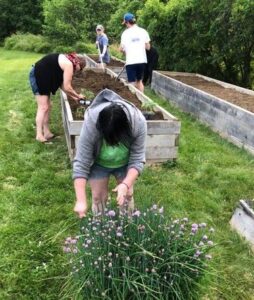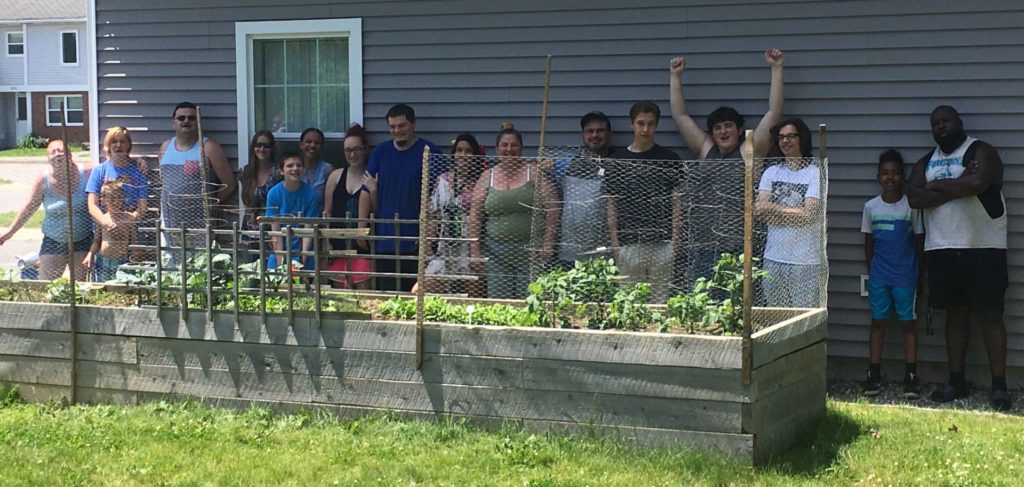At Food AND Medicine, we believe that access to local food is a right, not a privilege.
According to a 2015 report from the USDA, food security is defined as “access by all people at all times to enough food for an active, healthy life.” The average rate of food insecurity in 2015, according to the USDA, is 12.7% (15.8 million households) of American households; the average rate of very low food security (food insecurity with hunger) is 5.6%. State by state data uses averaged rates from 2013-2015. Maine’s rate of food insecurity is 15.8% and the rate of very low food security is 7.4% – which are both significantly higher than the national rates. Maine’s rates are the worst in New England; nationally, we are tied with Arkansas for third worst in the country, behind Mississippi and Louisiana. Nationally, rates of food insecurity are improving, while Maine’s rate is deteriorating.
 In 2016, we added a new program to help provide more access to healthy, local food to the community through raised bed gardens. In 2016, we organized the builds of three gardens – at the Bangor Area Recovery Network or BARN; Crestwood Place, a Bangor Housing senior and disabled apartment property; and at Eastern Maine Labor Council’s office in Brewer.
In 2016, we added a new program to help provide more access to healthy, local food to the community through raised bed gardens. In 2016, we organized the builds of three gardens – at the Bangor Area Recovery Network or BARN; Crestwood Place, a Bangor Housing senior and disabled apartment property; and at Eastern Maine Labor Council’s office in Brewer.
As of the 2023 year end, the gardens network stands at 31 collective gardens and one community garden in Bangor, Brewer and Orono. We call them "collective gardens" because each is one large garden benefiting and run by a group of people.
The gardens are teaching valuable new skills, particularly low-income and seniors, and people in substance abuse recovery, and also gives us a way to reach people who have had their SNAP (food stamps) benefits decreased or cut completely. Cooking, canning and shopping on a budget classes are also part of this program. Each property has a Garden Committee, made up of interested residents, who make all decisions, from the design and build of the gardens to the plants and harvesting. Garden Committees each send delegates to FAM’s Food Access Committee, where they can discuss best practices, learn about and discuss root causes of food insecurity and other food access related issues.
More than just gardening, these gardens are encouraging physical activity, socialization and building community where people tend to isolate themselves, awareness of and access to healthy food, and encourages civic engagement to foster change.


